The 15 Most Nutritious Vegetables You Should Be Eating More Of
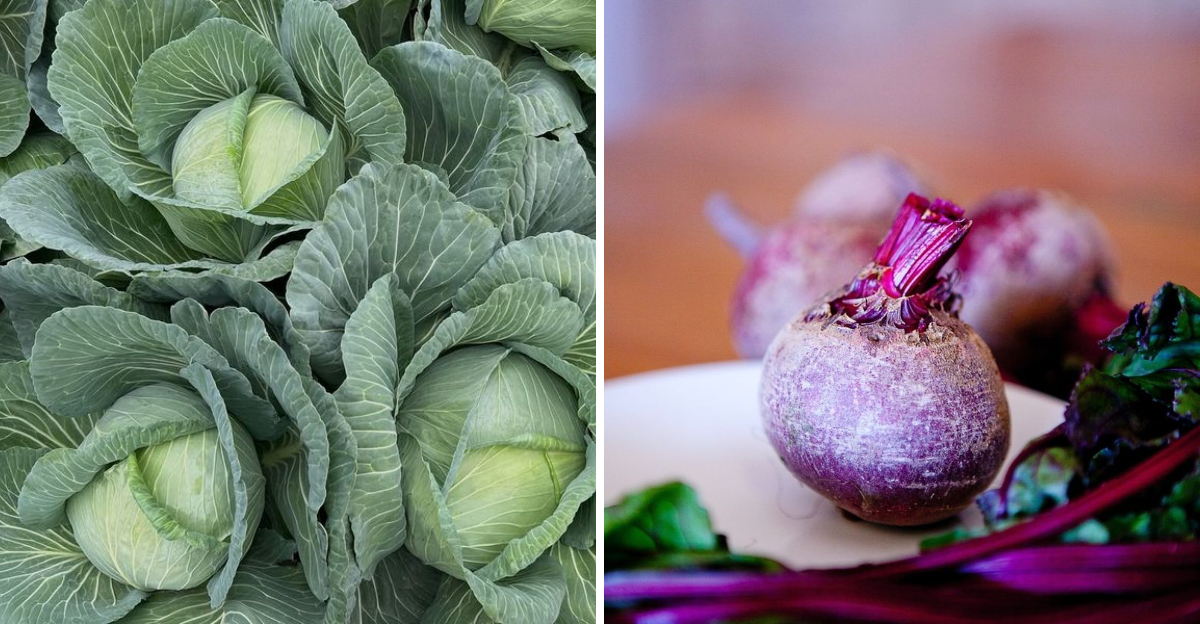
Vegetables are an essential part of a balanced diet, offering a wealth of nutrients and health benefits. This list highlights 15 of the most nutritious vegetables you should consider adding to your meals. From boosting immunity to improving heart health, these vegetables are a must for anyone looking to enhance their diet. Explore the nutritional benefits and unique qualities of each vegetable, along with some practical tips for incorporating them into your daily life.
1. Kale
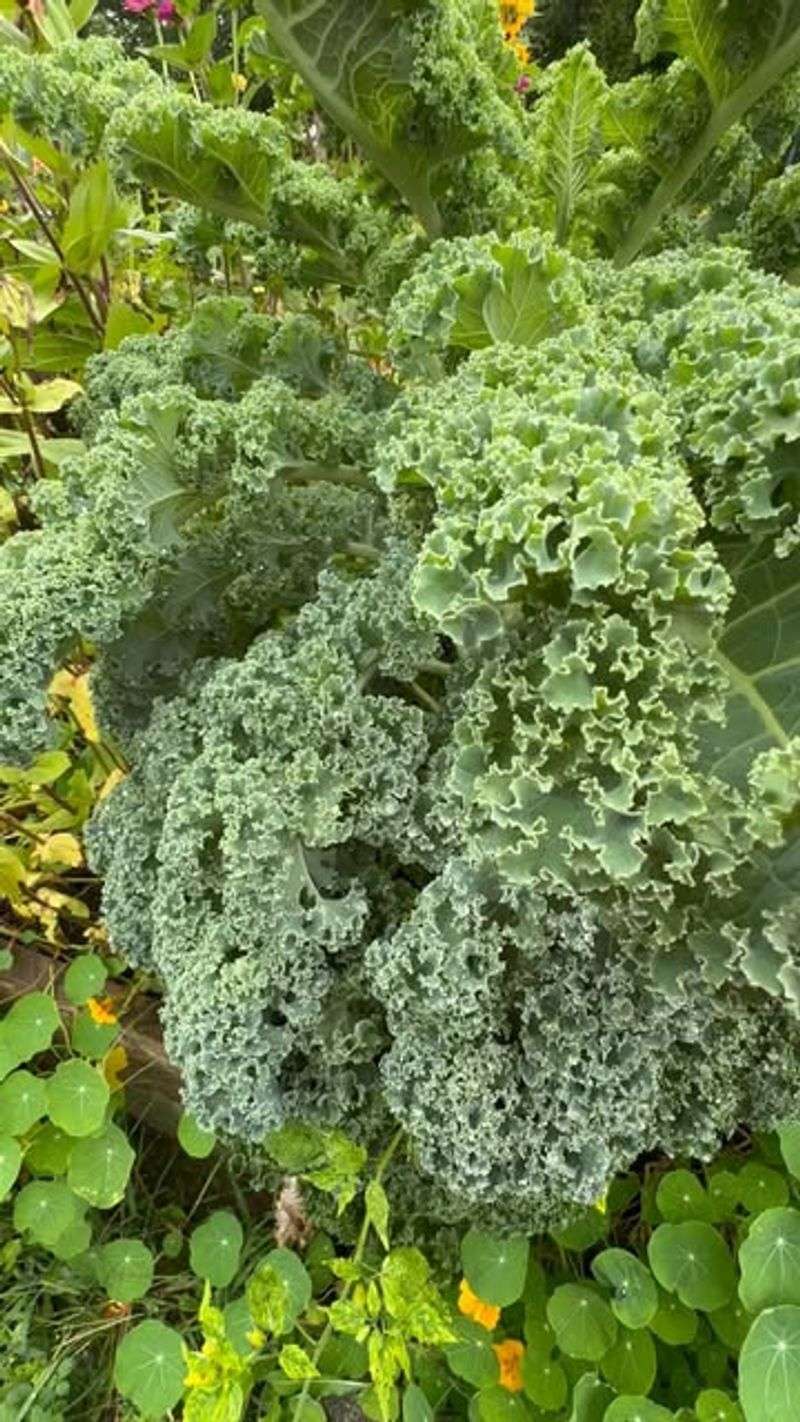
Kale is renowned for its nutritional powerhouse status. Rich in vitamins A, C, and K, it’s an excellent addition to any diet. Its high antioxidant content helps combat oxidative stress, promoting overall health. Kale’s versatility makes it easy to incorporate into meals. Whether sautéed, blended in smoothies, or tossed in salads, its slightly bitter flavor is easily balanced. Add lemon juice for a refreshing twist, enhancing iron absorption simultaneously. For a crispy snack, try baking kale chips with a sprinkle of salt and olive oil. This leafy green is a true champion among vegetables.
2. Spinach
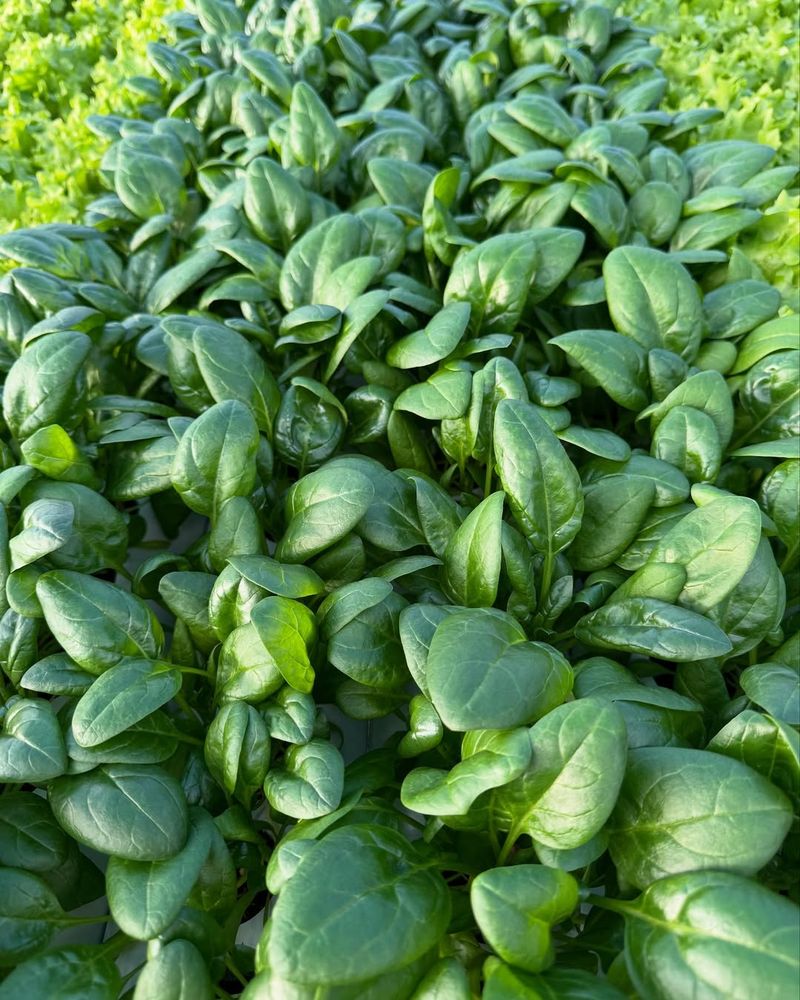
Spinach is a staple in the world of nutritious vegetables. Packed with iron, magnesium, and vitamins A and C, it supports eye health and boosts immunity. Its mild flavor and soft texture make it ideal for various dishes. From salads to pasta, spinach adds a nutritional punch. It’s particularly beneficial for vegetarians, offering plant-based iron. Sauté spinach with garlic for a quick, healthy side dish. Frozen spinach retains nutrients, offering convenience without sacrificing health benefits. Embrace this leafy green for a delicious way to fortify your diet.
3. Broccoli
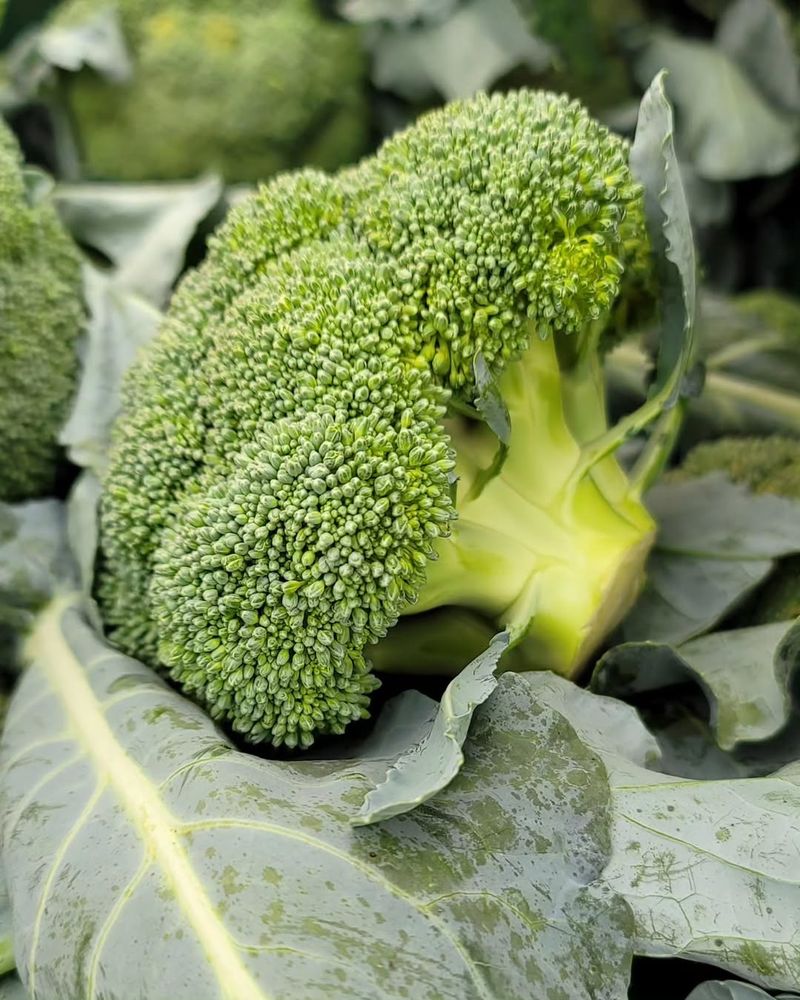
Broccoli stands out for its impressive nutrient profile. High in fiber, vitamin C, and calcium, it’s a boon for bone health. The sulforaphane in broccoli has potential anti-cancer properties, making it a wise dietary choice. Steaming broccoli preserves its nutrients while softening its texture. Pair it with a squeeze of lemon for added zest. Broccoli’s crunch complements a variety of dishes, from stir-fries to casseroles. Incorporating broccoli into your meals not only enhances flavor but also boosts your nutritional intake significantly, supporting overall well-being.
4. Brussels Sprouts
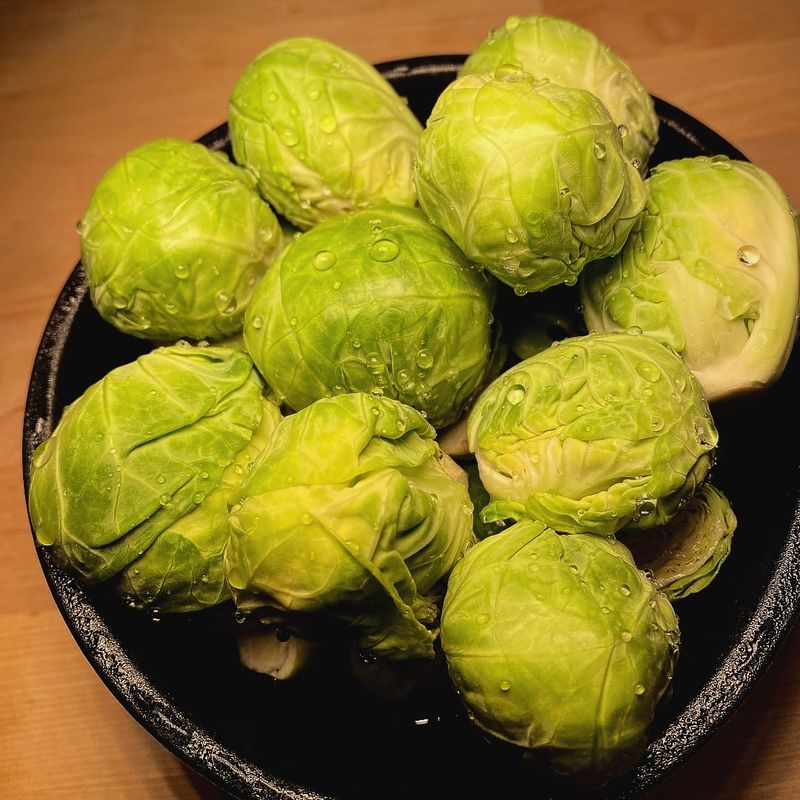
Brussels sprouts, often underestimated, pack a nutritional punch. They are rich in vitamins K and C, fiber, and antioxidants, promoting heart and gut health. Their nutty flavor is enhanced through roasting, creating a delicious, crispy exterior. For a flavor boost, try adding a drizzle of balsamic glaze. These sprouts pair well with bacon or nuts for added texture and taste. Whether as a side dish or incorporated into a main course, Brussels sprouts offer versatility, making them a worthy addition to any meal for enhanced nutrition.
5. Sweet Potatoes

Sweet potatoes are more than just a delicious treat; they are packed with nutrients like beta-carotene, vitamin C, and potassium. These components support vision, immune function, and heart health. Their natural sweetness makes them a favorite in both savory and sweet dishes. Bake them with cinnamon for a comforting side, or mash them with a hint of butter and herbs for a nutritious alternative to regular potatoes. Sweet potatoes are versatile and satisfying, making them an excellent choice for a nutrient-rich diet.
6. Carrots
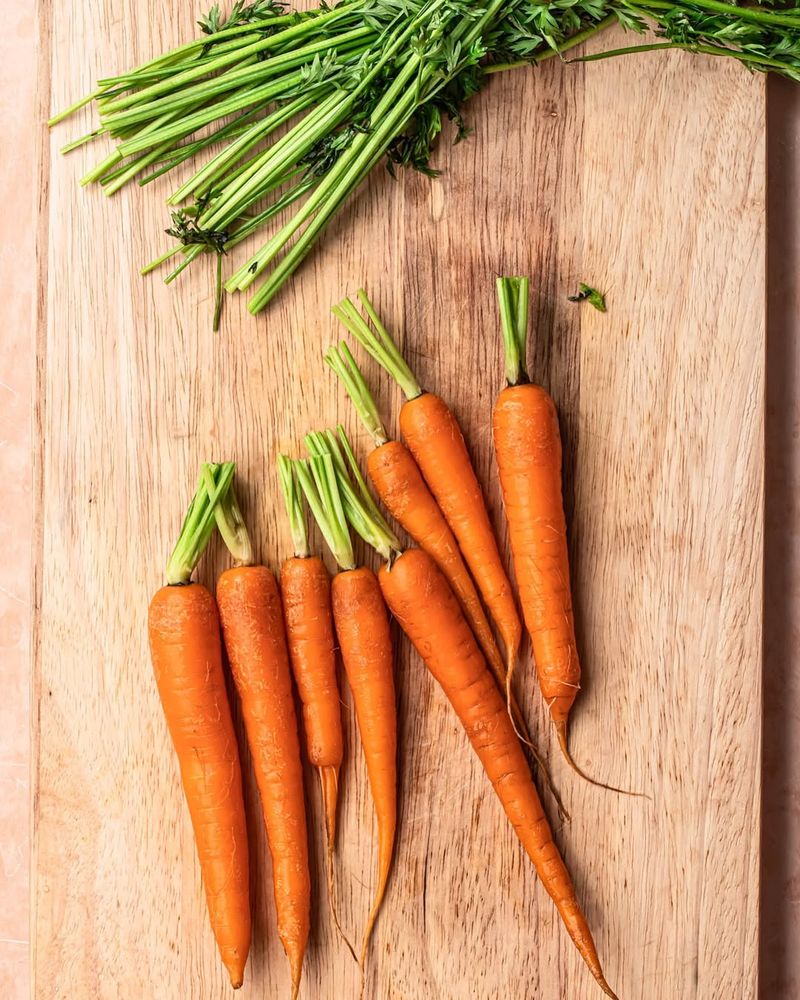
Carrots are famous for their high beta-carotene content, which the body converts into vitamin A, essential for vision and immune health. They’re also a good source of fiber and antioxidants. Carrots can be enjoyed raw, providing a satisfying crunch in salads, or cooked, where their sweetness intensifies. Try roasting them with honey and thyme for a delightful side dish. Including carrots in your diet is a tasty way to support eye health and overall wellness, making them a go-to vegetable for many.
7. Beetroot
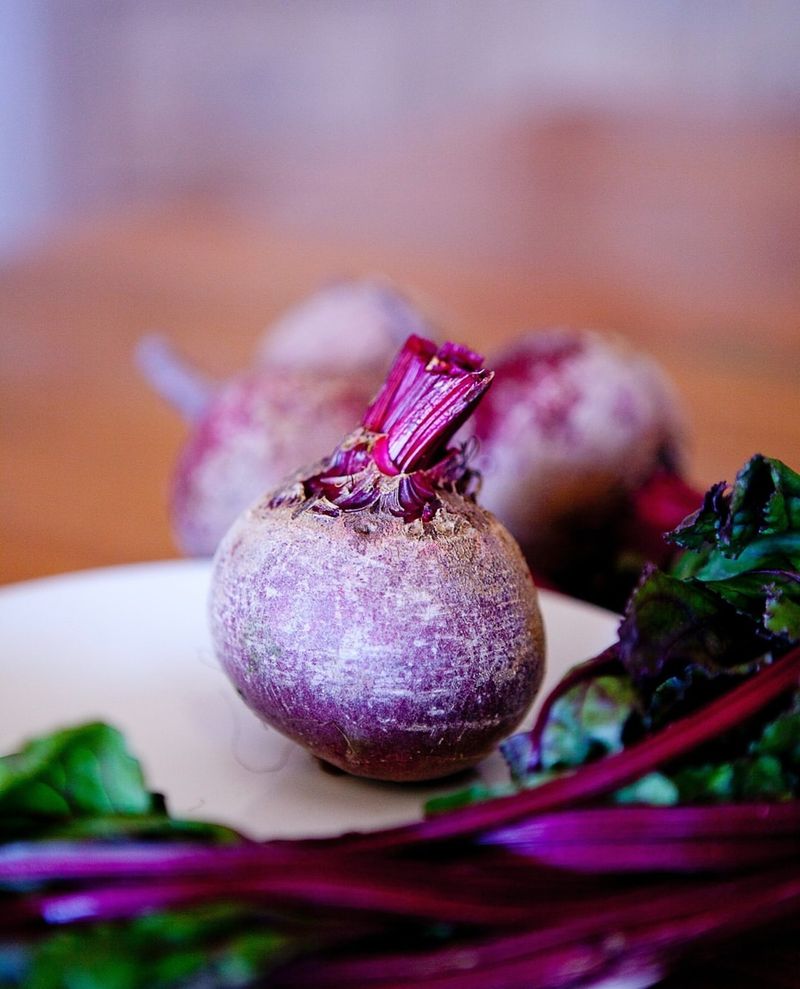
Beetroot is a vibrant vegetable known for its rich color and nutrient density. High in folate, manganese, and dietary nitrates, it supports blood flow and athletic performance. The earthy flavor of beets can be enjoyed roasted, boiled, or raw. Try adding sliced beets to salads for a pop of color and nutrition. Beet juice is another popular option, offering a concentrated dose of its health benefits. By incorporating beetroot into your meals, you embrace a unique flavor while boosting your diet’s nutritional value.
8. Red Bell Peppers
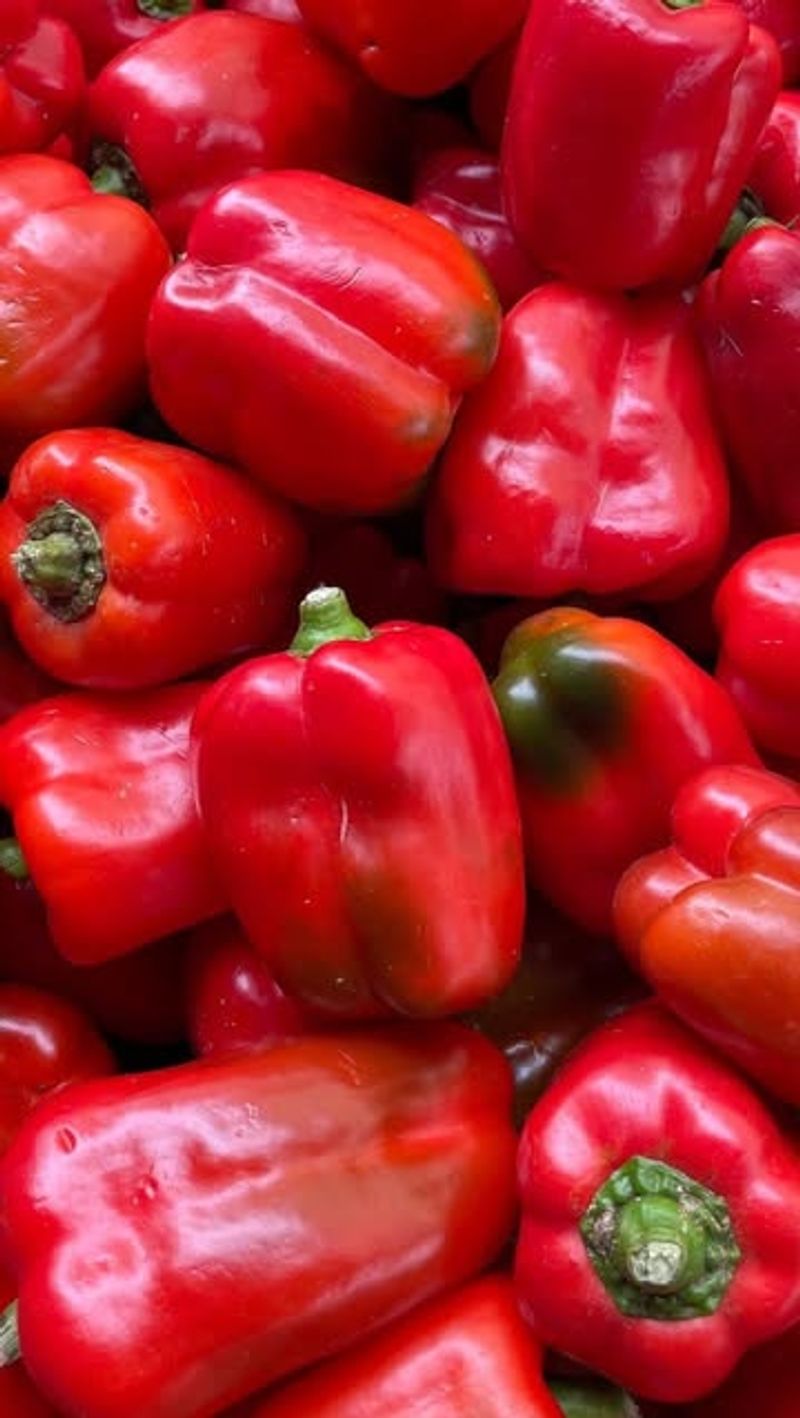
Red bell peppers are bursting with vitamin C, exceeding even citrus fruits in content. They are also packed with antioxidants and vitamin A, supporting immune function and eye health. Their sweet, crisp texture makes them a versatile ingredient in many dishes. Enjoy them raw for a refreshing snack, or roast to concentrate their sweetness. Stuffed red peppers make a hearty meal, combining flavor and nutrition. These vibrant vegetables add color and health benefits to any plate, enhancing both visual appeal and dietary value.
9. Cauliflower
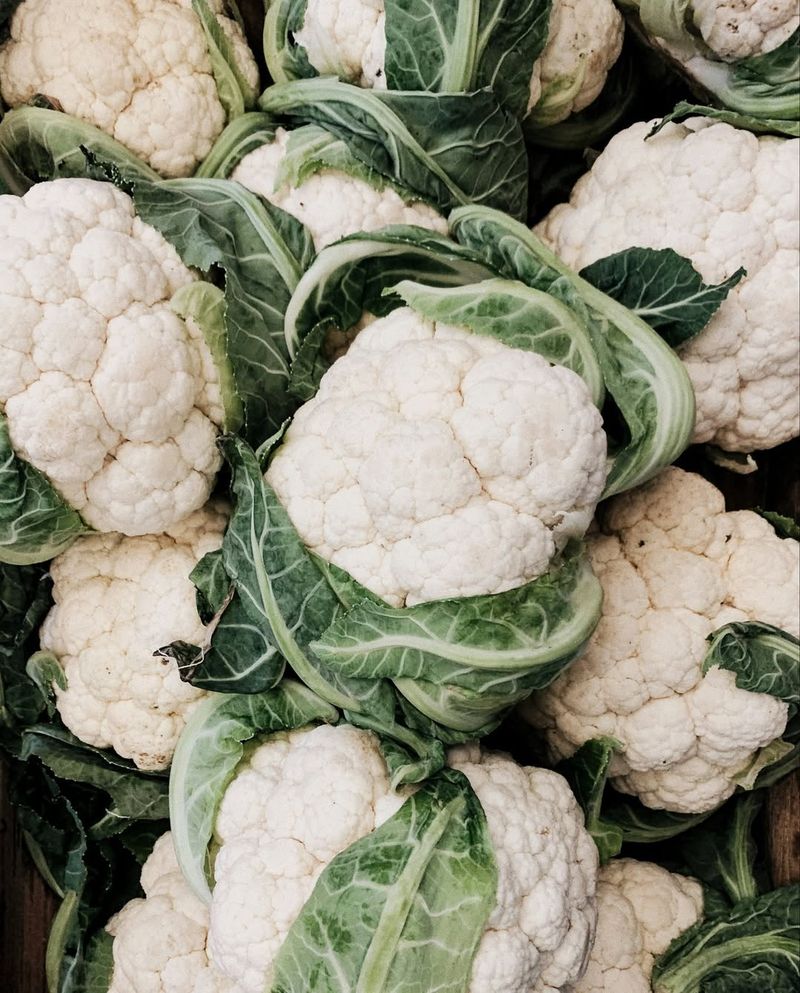
Cauliflower is a versatile vegetable, offering a low-calorie, nutrient-rich option for any meal. High in fiber, vitamins C and K, it supports digestion and bone health. Cauliflower’s mild flavor makes it a great substitute for higher-carb ingredients. Try cauliflower rice for a low-carb option, or roast it with spices for a flavorful side. Its ability to absorb flavors makes it a favorite in soups and stews. Incorporating cauliflower into your diet offers a nutritious boost with endless culinary possibilities.
10. Swiss Chard
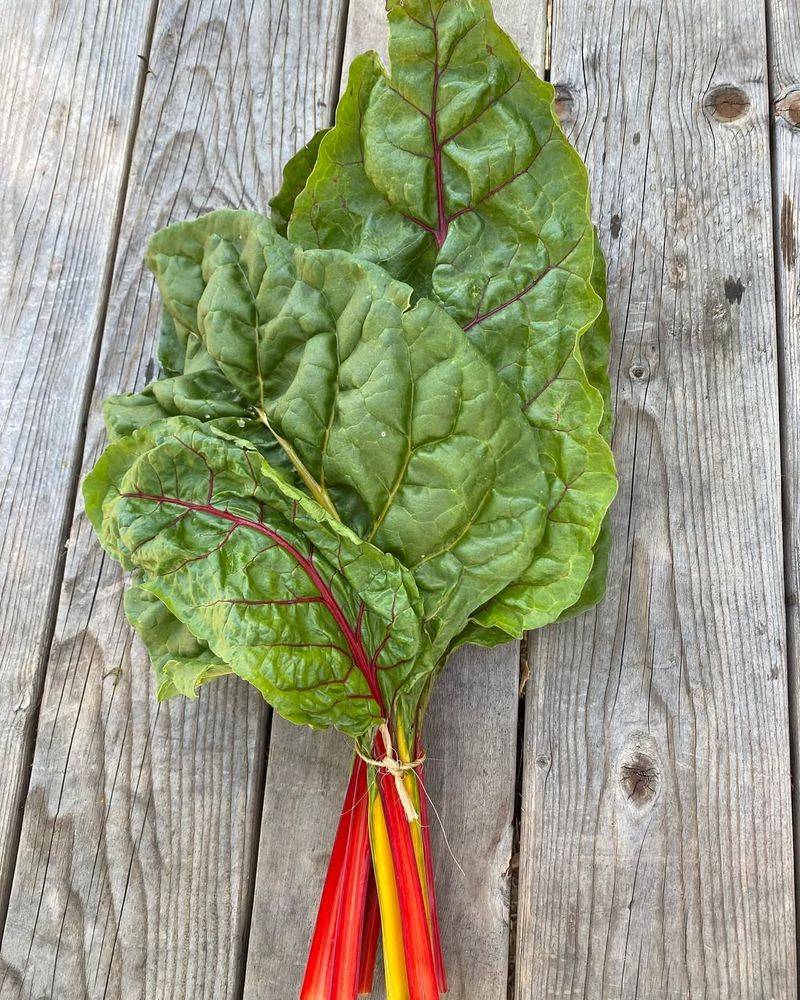
Swiss chard is a leafy green rich in vitamins A, C, and K, as well as magnesium and potassium. It supports bone health and lowers blood pressure. The slightly bitter taste of Swiss chard can be mellowed through cooking. Sauté it with garlic and olive oil for a simple, nutritious dish. Its rainbow-colored stems add visual appeal to any plate. Whether in soups or as a side, Swiss chard provides both nutrients and aesthetic beauty, making it a valuable addition to the kitchen.
11. Asparagus

Asparagus is a spring vegetable rich in vitamins K, C, and folate. It aids in detoxification and supports heart health. The tender spears have a unique, slightly sweet flavor. Grill or steam asparagus for a quick, nutritious side dish. Adding lemon or parmesan enhances its taste. Asparagus pairs well with eggs, making it a delightful addition to brunch dishes. This elegant vegetable not only elevates meals but also contributes to a healthy diet with its impressive nutrient profile.
12. Cabbage
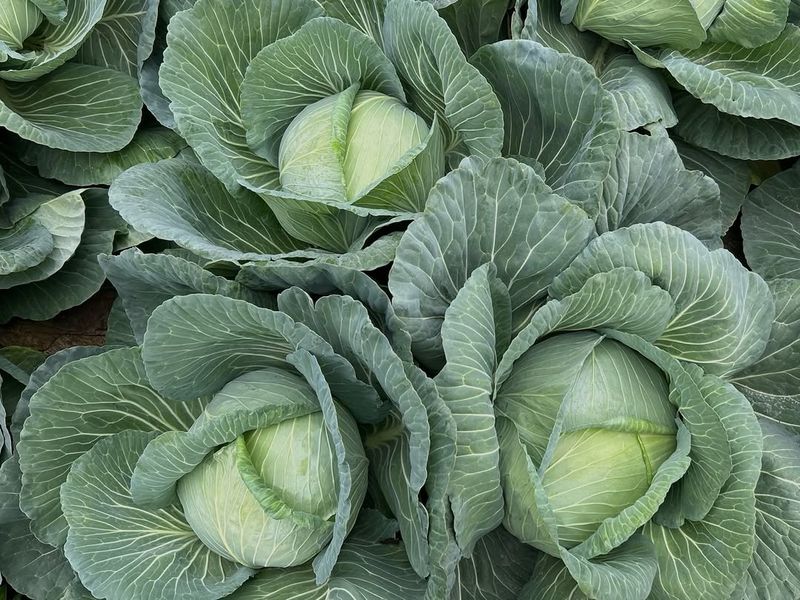
Cabbage is a cruciferous vegetable rich in vitamin C, K, and fiber, promoting digestive health and reducing inflammation. Its satisfying crunch and slightly peppery flavor are enjoyed worldwide. Cabbage can be fermented into sauerkraut, enhancing its probiotic content. It’s also delicious when stir-fried or used in soups and stews. The versatility of cabbage makes it a staple in various cuisines, offering nutritional benefits and culinary diversity. Incorporating cabbage into your meals supports a healthy lifestyle in a flavorful way.
13. Collard Greens
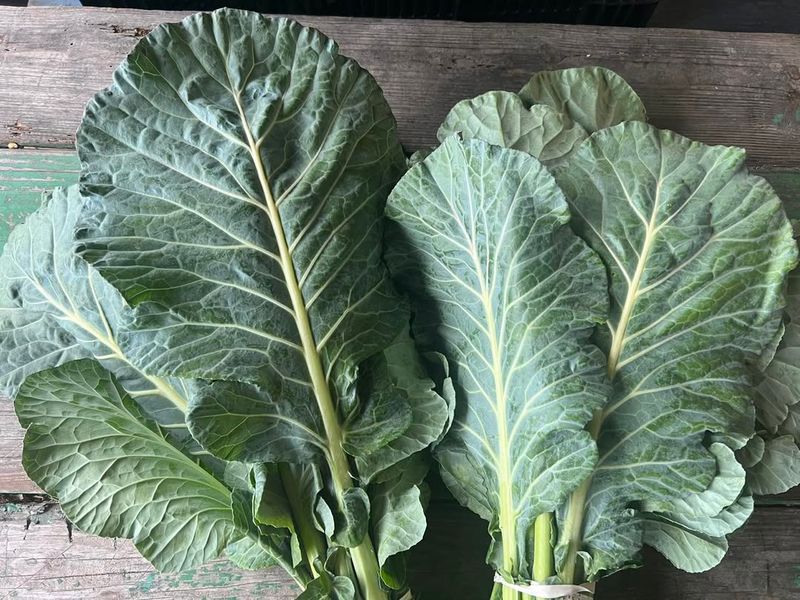
Collard greens are packed with vitamins A, C, and K, as well as calcium and iron, supporting bone and eye health. Their robust leaves offer a mild, earthy flavor. Southerners enjoy collard greens cooked with smoked meats. For a healthier twist, sauté them with garlic and lemon. Collards make excellent wraps, providing a low-carb alternative to tortillas. Including collard greens in your meals enhances nutrition while offering versatility in preparation methods.
14. Zucchini

Zucchini is a summer squash rich in vitamin C, potassium, and antioxidants. It supports heart health and hydration due to its high water content. Grilled, sautéed, or spiralized, zucchini fits into many dishes. Its mild flavor complements both savory and sweet recipes. Try baking zucchini bread for a nutritious treat. Incorporating zucchini into your meals provides a versatile, healthy ingredient that enhances diet variety and nutrient intake.
15. Green Beans
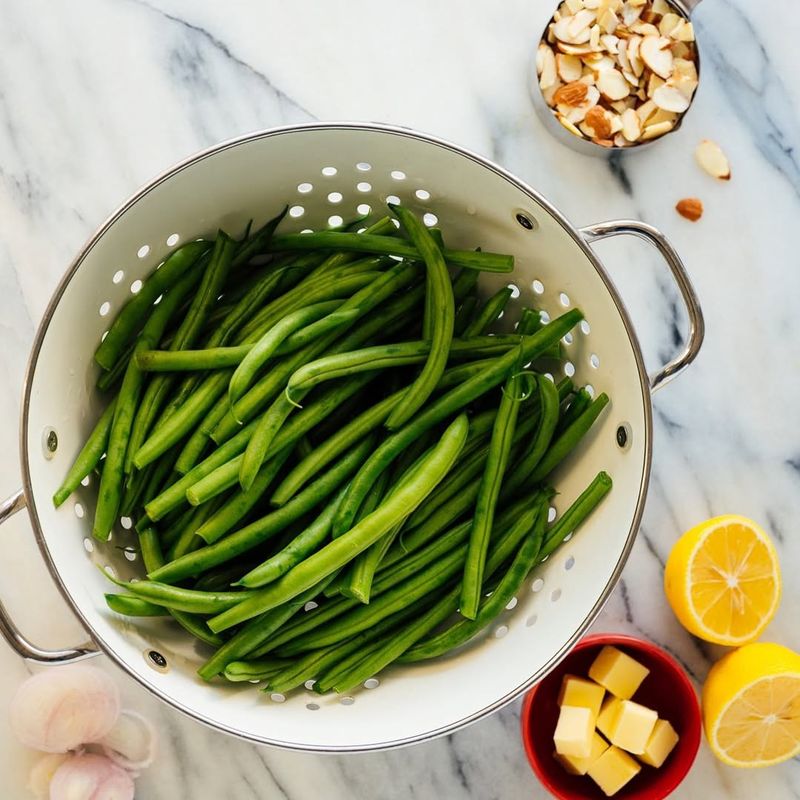
Green beans are a staple vegetable known for their crisp texture and nutritional benefits. High in fiber, vitamin C, and folate, they support heart health and digestion. Blanch green beans for a crunchy salad addition, or sauté with almonds for a flavorful side. Their mild flavor allows them to pair well with various seasonings and ingredients. By incorporating green beans into your meals, you embrace a nutritious vegetable that enhances taste and dietary value.
